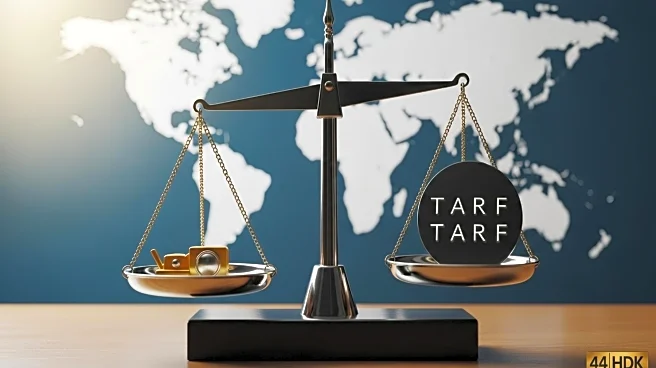What is the story about?
What's Happening?
The Trump administration has ended the de minimis exemption, which allowed low-value parcels to enter the U.S. without tariffs. This exemption applied to goods valued at $800 or less, facilitating tax-free imports from overseas retailers. The administration argues that the exemption was exploited to evade tariffs and import dangerous items, including synthetic opioids. The end of this exemption is expected to generate up to $10 billion annually in tariff revenues. A six-month transition period allows postal service shippers to pay a flat duty per package, depending on the country of origin.
Why It's Important?
The termination of the de minimis exemption marks a significant change in U.S. trade policy, affecting international retailers and consumers. Retailers like Shein and Temu, which relied on this exemption to offer low-cost goods, will face increased costs, potentially leading to higher prices for consumers. The move aims to bolster U.S. tariff revenues and address concerns over illegal imports, but it may also disrupt supply chains and international trade relations. The policy change reflects broader efforts by the Trump administration to tighten trade regulations and enhance border security.
What's Next?
Retailers affected by the policy change may need to adjust their business models, possibly shifting to domestic sourcing or increasing prices to cover new tariff costs. The transition period provides temporary relief, but long-term strategies will be necessary to adapt to the new trade environment. The policy's impact on international trade relations and domestic consumer markets will be closely monitored, with potential adjustments depending on economic outcomes and stakeholder feedback.

















